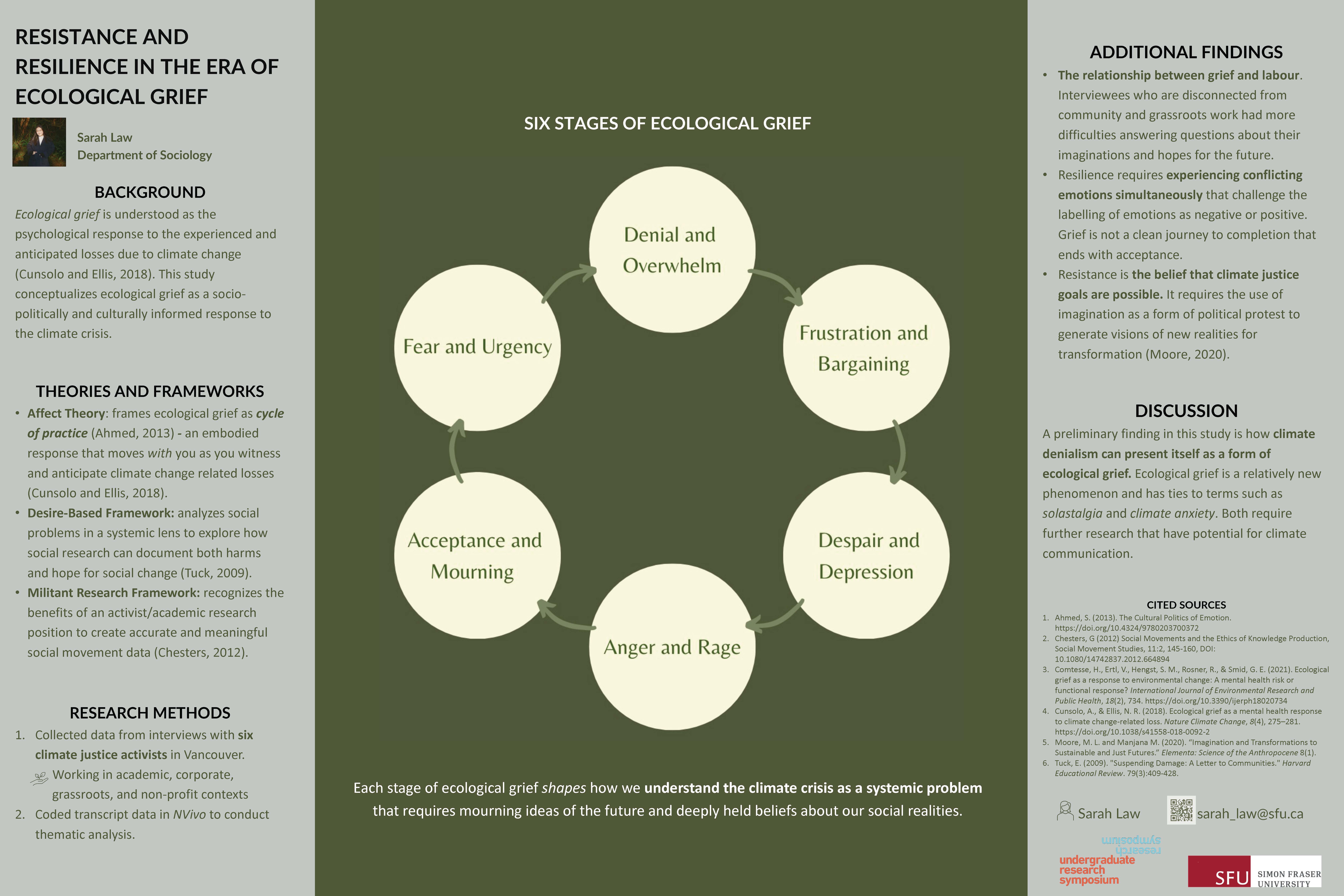Resistance and Resilience in the Era of Ecological Grief
Main Article Content
Abstract
How can emotions influence socio-political climate discourse and knowledge? Through the theoretical foundations of climate justice and anti-oppression, this thesis conceptualizes ecological grief through affect theory as a socio-politically and culturally informed response to the climate crisis occurring in six stages: (1) fear and urgency; (2) denial and overwhelm; (3) frustration and bargaining; (4) despair and depression; (5) anger and rage; and (6) acceptance and mourning. Affect theory frames ecological grief as a cycle of practice - an embodied response that does, informs, and shapes how we understand the climate crisis as a systemic problem that requires mourning ideas of the future and deeply held beliefs about our social realities.
This study presents data gathered from interviews with climate justice activists to learn about their experiences with ecological grief, and how they cope and persevere in their pursuits for just climate futures. The design of this study employs a desire-based framework which explores the lived realities and truths of the violent systems that create and sustain the climate crisis – while having hope. Through the radical imagination, I present how hope and grief must coexist in order to mobilize for social change.
Faculty Supervisor:
Dr. Amanda Watson, Department of Anthropology and Sociology, Simon Fraser University
Article Details

This work is licensed under a Creative Commons Attribution-NonCommercial-NoDerivatives 4.0 International License.

